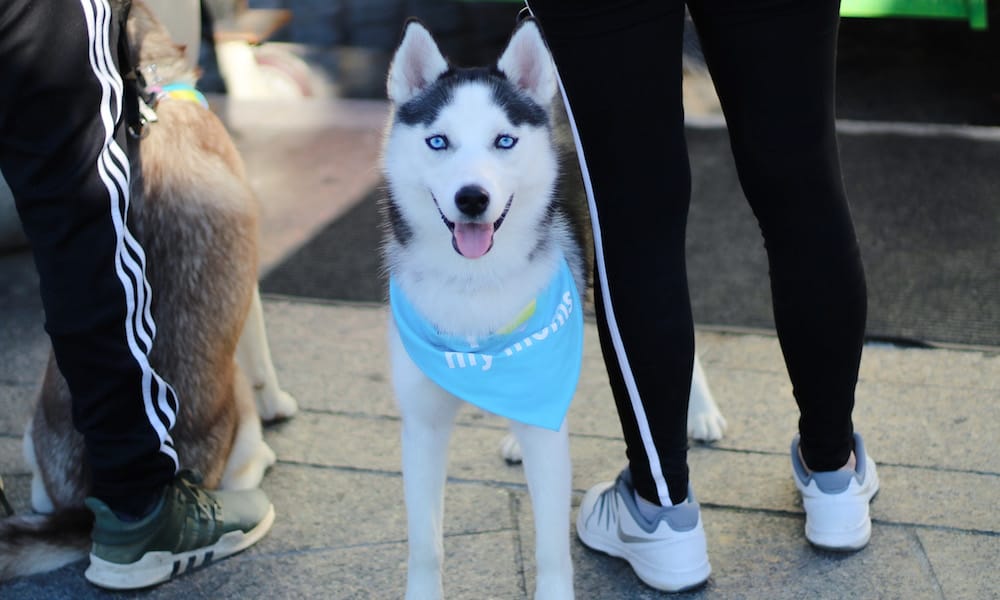I get it, your dog is incredible and well-behaved. However, that doesn’t mean I want them to approach my dog unattended.
I’m Rufus, the guy with the tan Pit Bull mix. Please take a moment to use a leash when walking your dog.
Look, I get it. Your dog is amazing and well-trained. Your dog has received extensive training and is familiar with a variety of verbal commands. Your dog is the most well-behaved dog you’ve ever had; he visits children’s cancer wards and retirement communities. I get it.
But here’s the thing: Even if your dog is extremely well-trained, they are still animals and may react instinctively, despite your absolute certainty that they won’t do anything impulsive or harmful. Although it’s conceivable that they won’t harm anyone, there is simply no way to be certain.
Get Answers to Your Questions:
Get your dog an NYC dog license
Although New York City is one of the dog-friendliest cities in the world, until your dog has obtained a NYC dog license, they aren’t truly New Yorkers. Yes, dealing with dog bureaucracy is necessary in addition to dealing with human bureaucracy.
It is mandatory for all dogs to have a NYC dog license, and while out in public, the license must always be displayed on the dog’s collar or harness.
The only dogs exempt from needing a dog license are:
Although getting your dog a license may seem tedious, the license has many beneficial uses.
A dog license can help dog owners:
Considering that licenses differ based on your dog’s age and whether they have been neutered or spayed, remember to renew it every one to five years.

Your dog must wear a leash no longer than six feet while out in public. This protects your dog’s safety as well as the safety of other people.
The law (New York City Health Code §161.05) states:
Any dog that is owned or controlled by a person is prohibited from being in a public space or an open field next to one unless it is restrained by a leash or chain that is no longer than six feet.
In participating parks’ off-leash periods or when your dog is in a dog run, this rule is an exception.
A $200 to $400 fine could be imposed for noncompliance.

Canine Waste Laws (NYC Pooper Scooper Law)
New York City has a long history with dog poop, and no one wants to have to walk down a sidewalk through a minefield of turds!
Fun fact: In the early years following World War II, the city relied on an outdated system that required sanitation workers to sweep animal waste out of city gutters. When that failed, they installed “doggie toilets” throughout the town—a fleeting fad!
When none of their solutions worked, the Canine Waste Law or Law 1310, known colloquially as the “pooper scooper law,” was passed in 1978. The law requires residents to both “curb your dog!” and pick up after them.
Here’s the law in writing:
Every person who has control over a dog is required to clean up any dog poop that has been left on a sidewalk, gutter, street, or other public space and dispose of it legally. The person has the option to scoop up the waste and carry it with them to the bathroom, their own trash can, or a trash bag for disposal. The waste can also be disposed of in a DSNY litter basket by sealing it in a non-leaking bag or container. Any blind person who is accompanied by a guide dog is exempt from the provisions of this law.
I think most would agree that this is an important law, and that dog poop covering the sidewalks is no good. Always have poop bags on hand and clean up after your dog.
If you don’t pick up after your dog, you risk receiving a $250 fine as well as some deserving stink eyes.

FAQ
Is it illegal to walk a dog off the lead in the UK?
There is no general regulation requiring leashed dogs in all public areas. However, there are a number of regulations that require you to keep your dog on a leash in specific locations in your neighborhood, such as playgrounds for children, sports fields, roads, parks, and beaches.
Are you allowed your dog off the lead?
Dogs are typically not allowed off lead near roads, parking lots, play areas, and certain ponds or streams at certain times of the year. Dogs may not be allowed in some parks, beaches, pitches, or children’s play areas, even when on a leash.
Is there a leash law in Alabama?
Dogs are not allowed to run at large in Alabama under the leash law. When off the owner’s property, they must be properly restrained at all times, either with a leash or another method that keeps them on the owner’s property. If a dog owner doesn’t leash their dog, they could be fined between $2 and $50.
What is the leash law in Tennessee?
According to Tennessee’s leash law, a pet dog cannot run free and must always be under the owner’s control.